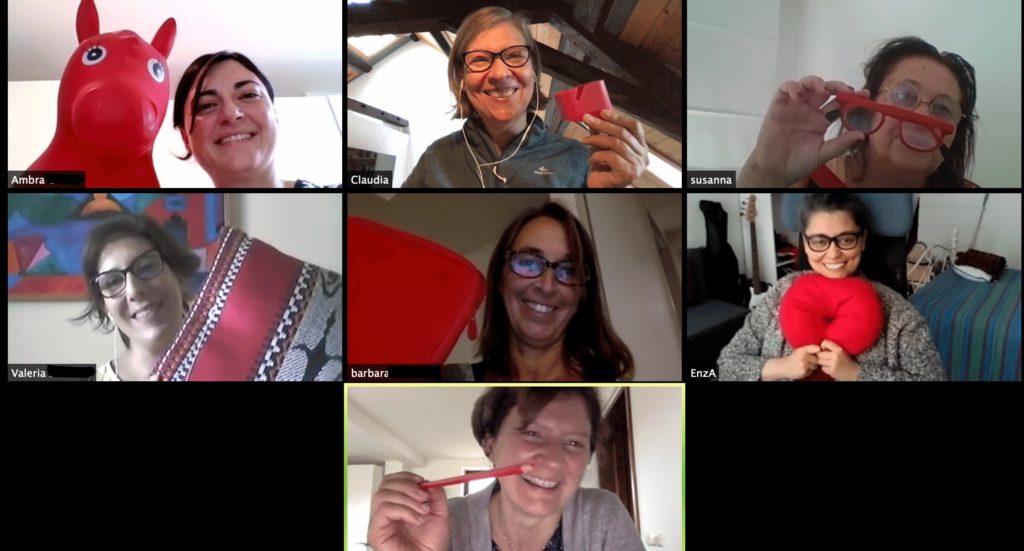The games in my webinars: how I choose them
I am back with my webinars on games. In this post I explain how I choose the games I share, and why.
I practice Linguistic Empathy and I expect you to do the same. Please bear with me if my English is not perfect. Read the Italian version here.
Test the games

I want to stress it: testing is very important. Of course, there can always be surprises when playing during the webinar, but rehearsing beforehand greatly reduces the chance of accidents. Also, try to include not very complex games, easy to explain and not too long.
The target
Another element to take into consideration is the target. If I give a webinar of games suitable for coaches I will have to try and put myself in the head of that category of professionals. Most probably a coach looking for activities to do face to face with a client will not be interested in learning an icebreaker that creates joy and a joyful atmosphere. He/she’ll be more interested in learning games that enable his client to analyze, reflect, dig inside and gain awareness. For an intercultural trainer I will have to carefully choose games that stick around the core of the intercultural subject, and therefore that always have a relationship with the theme they address and provide the possibility of a powerful debriefing. Of course, the more we know a professional sphere, or the more experience we have in the use of games in general, the more we will be able to create a suitable and satisfying webinar for our users.
These two basic premises, games suitable to played online and games targeted for the professional category I am addressing, already help me get off with the right foot.
Experience in person
Another criterion on which I rely is how much I have experienced the games in person, both in presence and online. My source, my roots and my inspiration in training trainers with the tool of the game come from my personal experience. Until recently it was possible to meet in person. I have always used a lot of games in my face-to-face workshops, and a great starting point for deciding which ones to include in my webinars is the success they have had among the attendees.

Some games are classics in face-to-face training (for example The Good Morning Game) but it is not possible to give them online because they need the element of physical encounter. Many others, however, can be easily adapted to the virtual world. Among them, I try to choose those that have been very successful or that I have felt particularly useful to explain a concept.
Personal taste
The last element I take into consideration is my personal taste. Since I love to play and I am deeply convinced of the usefulness of games in training, I rely on the effectiveness of the games I tested, and on how much I enjoyed giving or playing them. There are games in the various training I attended to grow as a professional, that fascinated me, enthused me, helped me understand things, or put me in the right mood to open up or learn further. Others I found difficult and complicated.
Summing up
The first two steps are to classify games according to how suitable they are online, and divide them by target group categories. These two stages can have the order you want. You can also choose whom you will address the webinar first and then filter the games based on how easy it is to deliver them online. The choice depends on your organisational style.
Second thing to choose properly: favour games that have been tested as much as possible both in presence and online. The more you have experienced them and the more you have become aware of what could go wrong and how to straighten it, the more control you will have over the situation, thus decreasing the risk of the webinar going wrong.
Finally, rely on the games that you liked. If you offer games that have excited you, you can be sure that others will like them, too.

